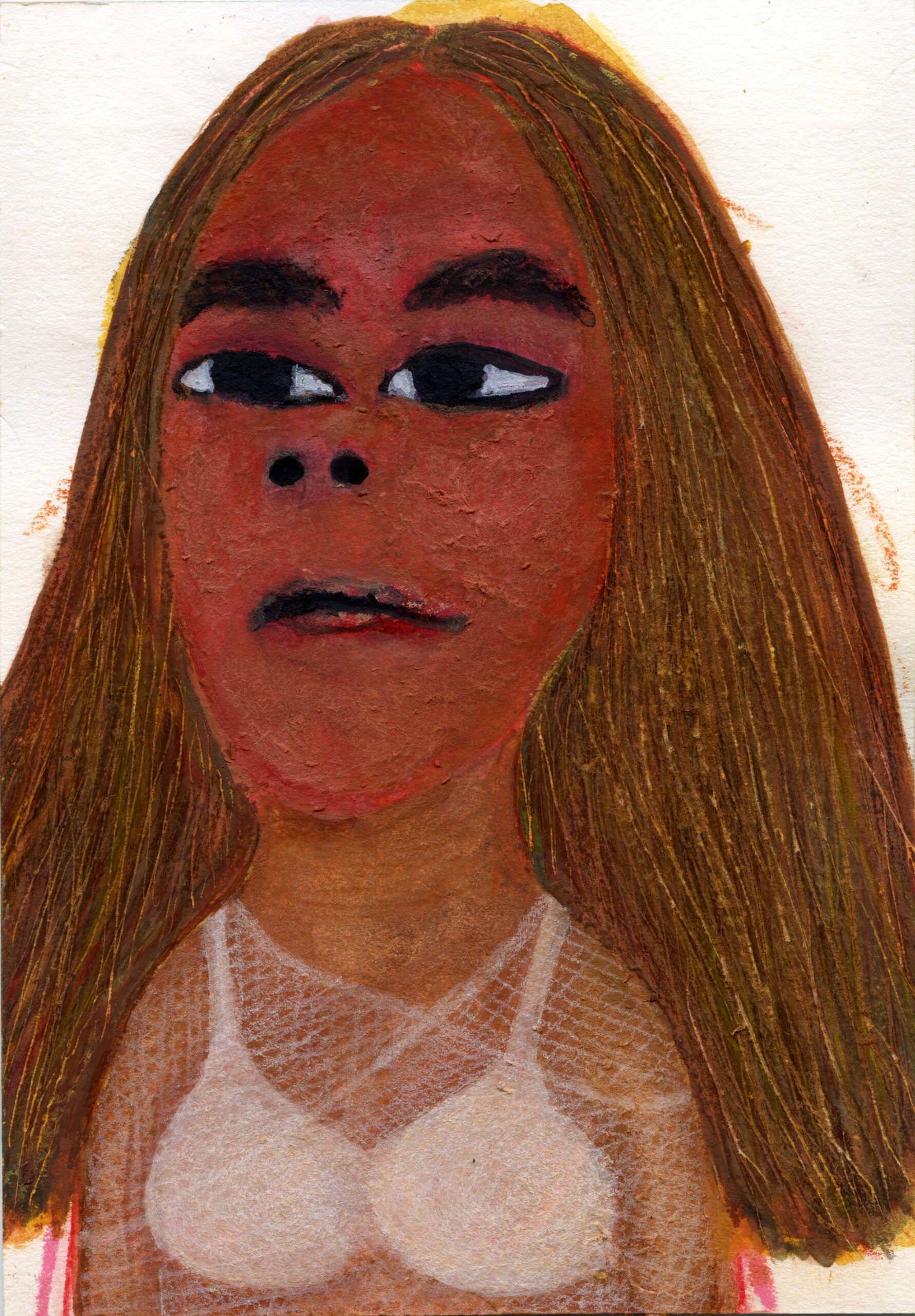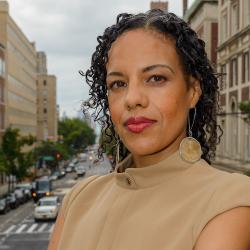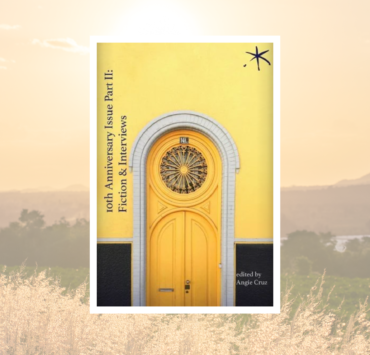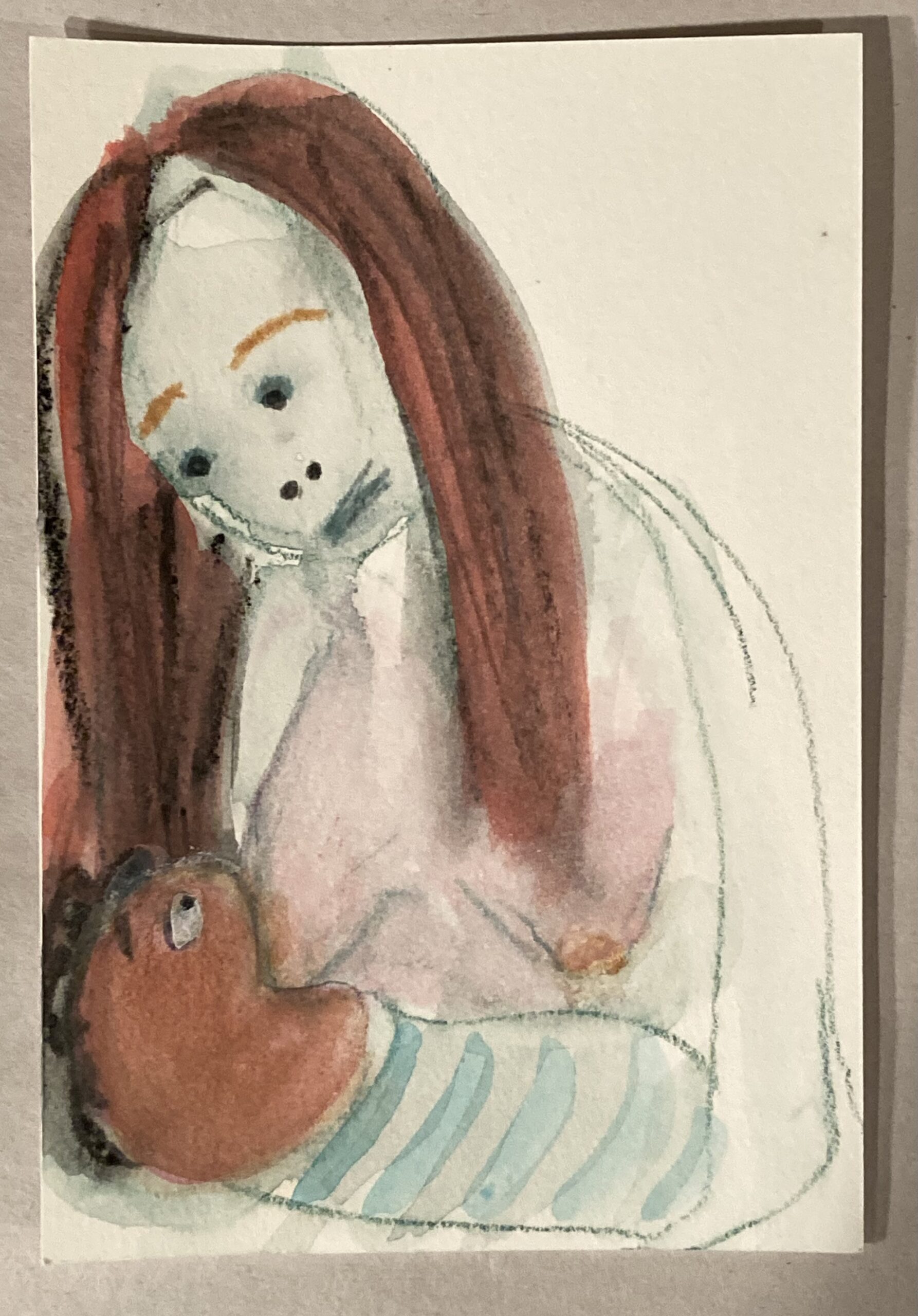
It has not been at my front of mind but, if I’m honest, I’ve been thinking a lot about bending. I’ve not consciously known it as such. My terse tongue has instead framed the anguish and fatigue of this long moment with another bodily analogy: metabolism. Minoritized women have been trained to metabolize pain, to become more efficient in its absorption and redistribution so as to withstand more and more and more, to dole out our fair share of more and more at every level of human interaction in the ever-onward march of racial capitalism: widgets and wars, six-foot fences and settler-colonial occupation. Forget the isolation, toxicity, and the debt—not to one another for the worlds we’ve heroically labored to create but the debt like a foregrounded charcoal watercolor that has laid waste to our bright horizons.
Yes, metabolism, but bend works too. The expectation being that, in the perpetual stretch and pull against our distinct, thoughtful ways of life and common dignity, our bodies will become more malleable, flexible such that the break (a la, “bend but don’t break”) will be many years, even decades later. Much like metabolism, we’re attempting to delay an inevitable rupture or consumption by the inertia of the world. We might almost be convinced of that possibility if we disregard the empire steadied on backs so disfigured by pressure that upright, upstanding has become a long ago tale, the moral of which we no longer believe. The fractures, herniation, and slippages somehow become tolerable, managed through an elaborate system of forgetting and excusing and stores of fortitude that might otherwise be dedicated to breaking that which breaks us.
Ali’s Studies series is a redirection that reveals something else. I can’t look at the image without being pulled into its mirror. The arc of their hips is a rainbow in reach of something before or below, all the while looking up and forward. It’s a call and beckoning desirous of being and knowing against the gravity of harm. What can we see from another vantage—that which we emphatically choose and lay claim to? Arms reaching overhead toward some core or some sky or someone worth the change in direction. Following the gaze of the curly-haired and bent figure, I’m captured by the way they make it look easy, preferable even, staring back at me with acknowledgement. Your body, your moves, they seem to say. Bend for your purposes, your pleasure. I admire that naked will to reach for something real in antagonism to those who watch in admonishment instead of merited awe. There are wonders every day, after all, not the least of which are our bodies.

A boundaryless writer and scholar, Shana L. Redmond (she/her) is the author of Anthem: Social Movements and the Sound of Solidarity in the African Diaspora (NYU Press, 2014) and the award-winning Everything Man: The Form and Function of Paul Robeson (Duke UP, 2020). She is a 2023 Guggenheim Fellow and professor of English and Comparative Literature and the Center for the Study of Ethnicity and Race at Columbia University.







